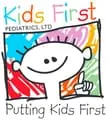Immunization Overview for Fall and Winter 2023-2024
For the first time ever, immunizations are available this fall and winter in the United States that can help protect against three major respiratory diseases: COVID-19, influenza, and RSV (respiratory syncytial virus). Immunization against these viruses remains the best protection against serious illness, hospitalizations, long-term health impacts, and death.Nationwide delays at the manufacturer level have impacted the availability of these products.
We are writing to summarize what your child may be eligible for and what is available in our office.
All of these vaccines can be given at the same time to eligible patients. If you have health concerns about your child, please contact our office prior to your vaccine appointment.
At this time, we are not able to offer vaccines to parents/caregivers. Adults should talk to their doctor or check vaccines.gov (https://www.vaccines.gov) for a vaccine location near them.
Influenza
Everyone aged six months and older should get an updated flu vaccine.*
We currently carry both the flu shot and, for most individuals 2 years and older, a nasal spray flu vaccine. You can make flu and/or COVID-19 vaccine appointments for your children via the My Chart scheduling feature or visit https://www.vaccines.gov/ to find other locations.
More information: Prevent Seasonal Flu.
COVID-19
Updated COVID-19 vaccines were released in September 2023.
Everyone aged five years and older should get one dose of this updated 2023-2024 COVID-19 vaccine. Children aged six months to four years old may still need multiple doses of COVID-19 vaccine to be up to date, including at least one dose of this updated vaccine.
We currently carry the COVID-19 vaccines for all children aged 6 months and older.
More information: Coronavirus Disease 2019 (COVID-19)
RSV (Respiratory Syncytial Virus)
New this year, there is an RSV antibody injection called Nirsevimab (Beyfortus), for young babies only. Unfortunately, there is a nationwide shortage of this product. We are fortunate to have obtained a limited supply.
Currently, the CDC recommends nirsevimab for infants at the highest risk for severe RSV disease: young infants (age <6 months) and infants with underlying conditions that place them at the highest risk for severe RSV disease.
If your child is under 6 months old, we hope to offer them this RSV antibody injection at their next well visit or a shot clinic, as supply allows. Please contact us through MyChart if you have any questions or to express interest in this shot for your child.
More information: Update on RSV and New Vaccine Recommendation
Other ways to help prevent illness:
- Stay up to date on all your child’s other routine vaccines.
- Vaccinate parents, household contacts, and caregivers.
- Limit your baby's exposure to crowds, other children, and anyone with colds.
- Keep children home from school or child care when they are sick and teach them to cover their coughs and sneezes.
- Breastmilk contains antibodies that may help prevent and fight infections.
- Wash everyone’s hands thoroughly and frequently.
- Disinfect objects and surfaces in your home regularly.
- Avoid exposing your child to smoke of any kind.
*For kids under 9 years old, a booster dose may be required (if the child has not received 2 doses before this season).
